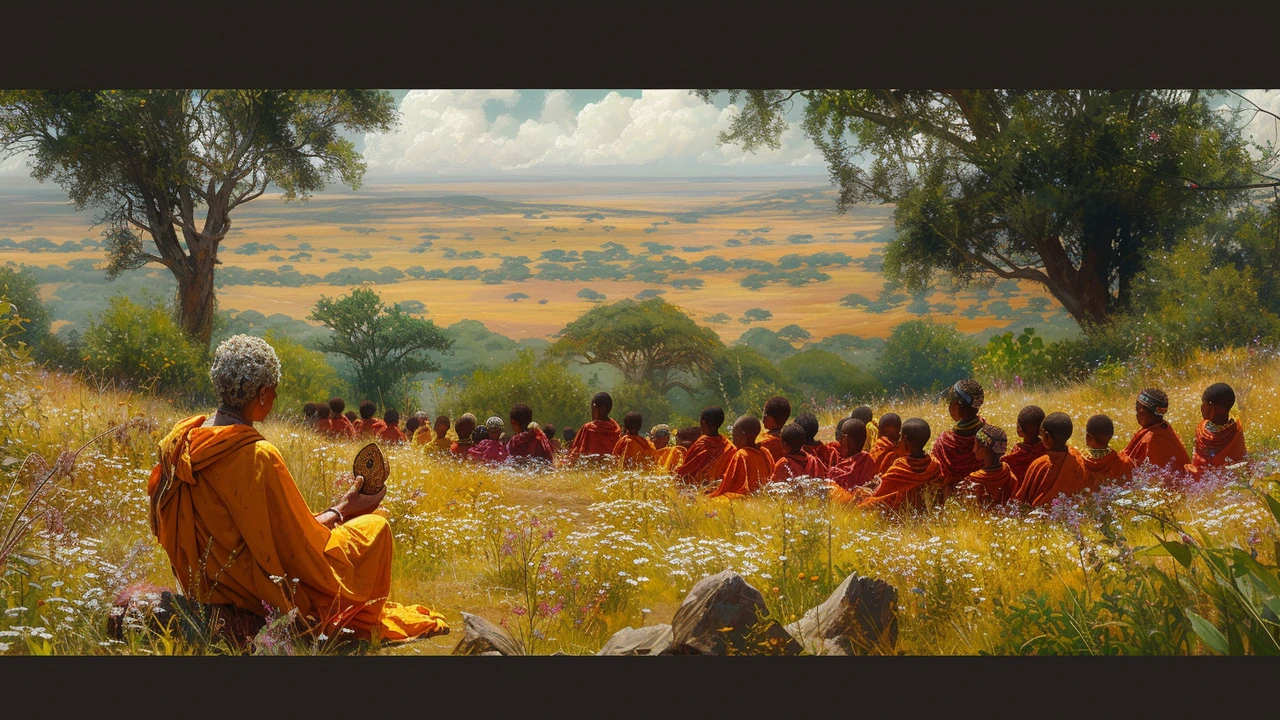The Impact of Rungu in African Culture

Rungu: The Emblem of Power
Let's take a cruise down history lane today. Anyone who knows me well, knows how much I love learning about traditional cultures from around the world. It's an interest that got sparked years back when Ellis came home with a school project about different global cultures. I still remember sitting cross-legged on his room floor, flipping through a children's encyclopedia, and totally immersing ourselves in this vibrant, diverse world. And today's subject is the deeply symbolic Rungu; a strong emblem of power in African culture. This traditional weapon and symbol, native to Eastern Africa, is steeped in historical importance and cultural significance.
The Traditional Rungu: What It Is
Now, you might be wondering, "What is a Rungu?" Well, a Rungu is essentially a wooden throwing club or baton. It bears a great deal of resemblance to a baseball bat, but with a more refined, artistic finish. There's a distinctive bulbous end, and the Rungu has been a mainstay in the African cultural landscape for centuries. Isn't it incredible how symbolism permeates even the most everyday items? Like how even my dear tortoise Montgomery's shell symbolizes protection and perseverance in many cultures.
Origins of the Rungu
The origins of the Rungu trace back to the Maasai people of Kenya and Tanzania. The Maasai have been using the wooden clubs in a myriad of capacities, from hunting to ceremonial functions. When I think back to my own ancestry, the only analogous item I can think of is my great-grandfather's walking cane, which apparently had a knack for uncovering hidden truffle mushrooms. I suppose we all have our unique tools, don't we?
The Rungu and Its Cultural Significance
But the Rungu isn't just a utilitarian object; it holds a deeper, symbolic meaning. Traditionally, a Rungu was a symbol of power and authority. It's an emblem of leadership. In many tribes, the chief or elder would carry a Rungu, and it's not unlike how in the Harry Potter universe, the one with the elder wand holds immense power. It’s the kind of stuff that really brings history to life.
The Rungu in Ceremonial Functions
This culturally rich artifact is used largely in ceremonies and rituals related to leadership and social structure. During rites of passage in certain tribes, young men may be given their first Rungu to signify their transition into adulthood. It's a poignant moment, akin to Ellis' graduation from kindergarten – albeit with less face-painted kangaroos and more time-honoured tradition.
The Rungu as a Weapon
Historically, the Rungu has also been used as a weapon. Maasai warriors, known as Morans, were often seen with a Rungu in hand. The baton's efficient design and powerful impact made it a useful self-defense and hunting tool. Yet despite its striking power, it's the Rungu's symbolic strength that truly resonates with the people who uphold this tradition.
The Rungu Today
Today, the Rungu holds onto its heritage and significance. Even as modernization inches its way into daily life, the tradition and respect for the Rungu remain deeply rooted. It is still crafted with care and used in ceremonial functions. And as an art piece, it's a strong representation of African culture. I have a small collection of cultural artifacts, and a beautifully carved Rungu is definitely on my wishlist.
The Global Reception to Rungu
In recent years, the Rungu has gained global attention. It has become a representation of African culture in international markets, and is used extensively in works of art, exhibitions, and cultural festivals. Even though the Rungu is quite a departure from the Australian boomerang, it's this shared love for culturally significant items that makes the world feel a little closer.
Preserving the Heritage of the Rungu
In conclusion, the importance of the Rungu in African culture cannot be overstated. It’s a tool, a symbol, an artifact that has stood the test of time and continues to bear witness to the cultural wealth of the African continent. And while it brings me immense joy to delve deeper into these rich traditions, it's even more important to highlight the gravity of preserving these heritages for future generations, much like the stories we pass down to our children. Ellis, I hope you're reading this. I might quiz you later!





